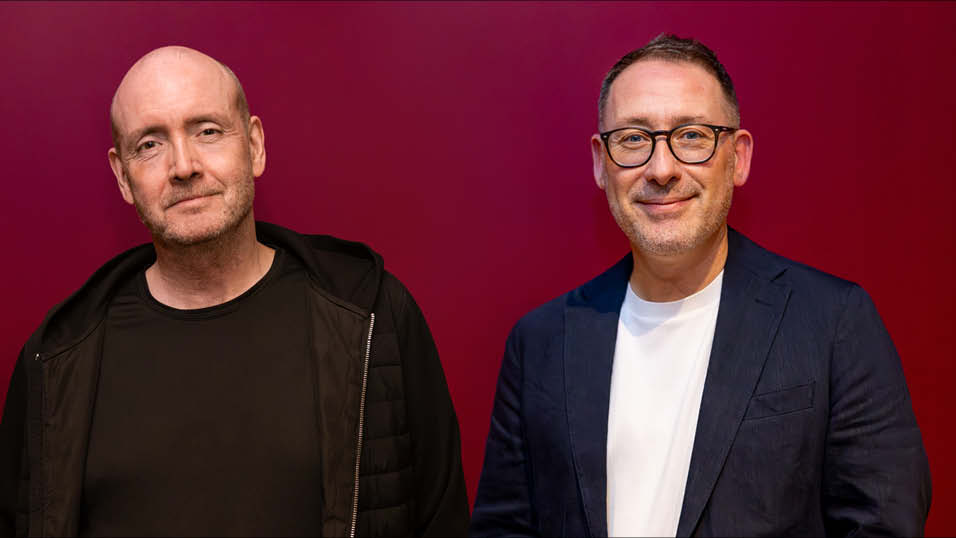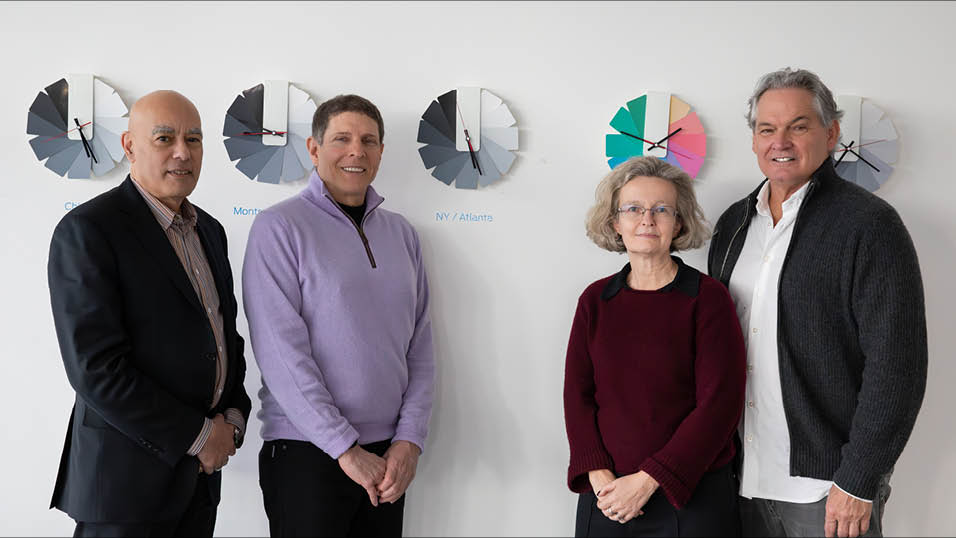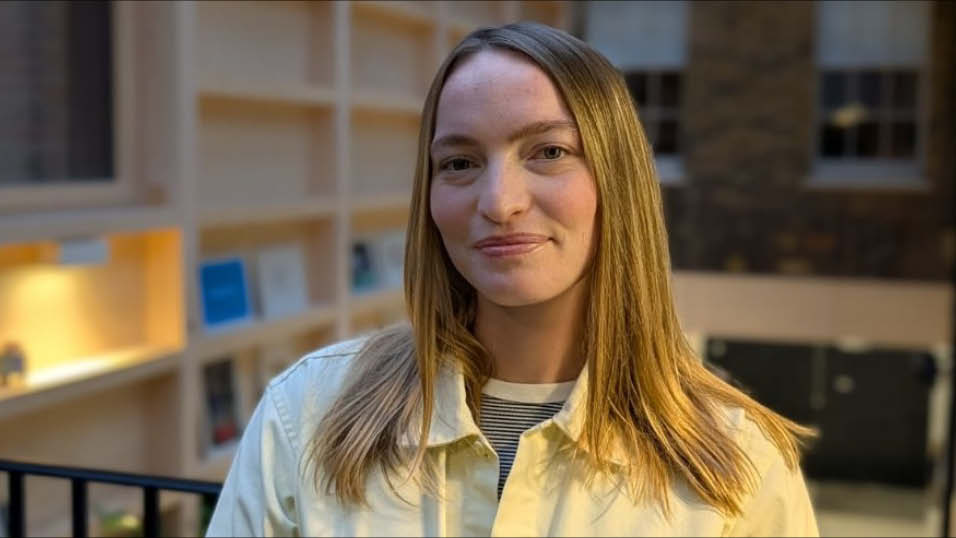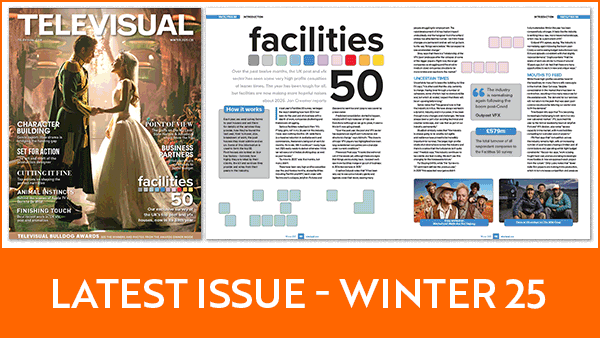Creative Diversity Network (CDN), the industry body measuring diversity on and off-screen in UK television, has published its latest annual report analysing data gathered through the Diamond diversity monitoring system.
The report covers an 18-month period from August 2023 to December 2024.
This year’s Diamond findings reveal clear improvements in several key areas, particularly in the off-screen inclusion of underrepresented communities, but at the same time a mixed picture with continuing concerns about a lack of progress in others.
Representation of disabled people in off-screen roles is at the highest level (9.7%), since Diamond began reporting, and is now more than double the original figure (4.5%) when CDN launched its Doubling Disability initiative in 2018. However, it remains considerably below the equivalent workforce figures. Similarly, while on screen representation of over 50s increased, this is still far lower than the UK population estimate.
Representation of people from Black, Asian and minority ethnic groups off-screen increased to 14%, which remains below the workforce estimate of 17%. However, this rise was mainly attributable to an increase in Mixed or Multiple ethnic groups and East Asian or British East Asian people. The overall number of off-screen contributions from Black, Black African, Black Caribbean or Black British people has fallen to 3.0% compared to the workforce estimate of 4.9%.
Women are still more likely to be in non-senior jobs and are heavily outnumbered by men in some of the more influential senior roles, such as Director, where women only account for 27.3% of contributions across the industry.
This year’s report includes a focus on contributions across senior roles within UK television, highlighting areas of progress and persistent gaps. Encouragingly, there have been year-on-year increases in the representation of women, disabled people, and individuals from East Asian or British East Asian and people who are South Asian or British South Asian ethnic backgrounds in key senior positions.
However, disparities remain. The number of people who are Black, African, Caribbean or Black British in senior roles has roles has decreased, and representation of disabled people, transgender people, and bisexual individuals in senior roles consistently lags behind workforce benchmarks.
Richard Watsham, CDN Chair and Chief Creative Officer, UKTV & Global Director of Acquisitions, BBC Studios/UKTV said: “This year’s Diamond findings reflect progress in some areas but also persistent inequalities. For example, representation of disabled talent across the industry has grown again and is at last higher than the target set by CDN’s Doubling Disability initiative which began in 2018. Representation of Asian and minority ethnic groups has also risen, despite the challenging times faced by freelancers, but at the same time, it’s concerning to see that the number of Black workers actually fell, despite the initiatives put in place following the Black Lives Matter movement. We must ensure as an industry that we remain focused on sustaining progress, rather than thinking the job is done and moving on to something else. We must redouble our efforts to create inclusive pathways to leadership, and an industry culture that actively retains diverse talent long-term.”
Miranda Wayland, Chief Executive CDN added: “The Diamond Report for 2022–2024 covers a time of intense pressure and transition for the UK television industry, particularly for the freelance workforce that underpins much of our sector. We know that those freelancers from lower socio-economic backgrounds, with caring responsibilities or with vulnerabilities are likely to be disproportionately impacted by the current crisis.
“As an industry we must urgently address the barriers that hinder career progression and build a culture where freelancers are not only included but supported and valued. Their resilience and creativity have sustained our sector through its most difficult times; now we must ensure that the future of television includes them fully, fairly, and equitably.”
The headline findings include:
Over 50s
- Representation of over-50s off-screen increased from 23.5% to 26.6%, but below the UK workforce estimate (30.0%).
- Comedy (47.7%) and Drama (38.2%) are the only genres in which over-50s representation currently exceeds the UK workforce estimates.
- Over-50s are better represented in senior roles than in non-senior roles, yet they currently fall below workforce benchmarks in key creative positions, such as Producer (18.8%), Producer Director (11.8%), and Writer (26.0%).
- On-screen representation increased from 27.3% to 30.3%. However, this remains well below the UK population estimate (47.3%).
Disability
- Representation of disabled people off-screen increased from 8.0% to 9.7%. Most of the increase can be attributed to people with learning or cognitive disabilities. However, across all genres, this remains significantly lower than the UK workforce estimate (20.0%).
- Disabled people have seen an overall increase in senior role representation off-screen, particularly among Writers (an increase of 4 percentage points from 2022/23 to 2023/24). However, levels remain below the national workforce estimate all senior roles.
- On-screen representation remains only just over half (9.6%) of the UK population estimate (17.7%).
Black, Asian and minority ethnic groups
- Representation of people from Black, Asian and minority ethnic groups off-screen increased from 13.4% to 14%, lower than UK workforce estimates (17.0%). This is mainly attributable to an increase among people from Mixed or Multiple ethnic groups and East Asian or British East Asian people.
- During the period, representation of people who are Black, Black African, Black Caribbean or Black British fell from 3.5% to 3.0%, well below the UK workforce estimate (4.9%).
- Factual programmes (11.8%) are currently the least representative of people from Black, Asian and minority ethnic groups, followed by Lifestyle programmes (12.5%). Entertainment programmes have the highest representation (16.6%).
- Black, Asian and minority ethnic groups have seen slight gains in senior roles overall (12.2% to 13.2% from 2022/23 to 2023/24). Writers saw the largest jump (an increase of 11.9 percentage points), while roles like Commissioning Editor saw a decline of 5.5 percentage points.
- However, most ethnic groups are less well represented in senior roles than in non-senior ones, and Black representation in senior roles remains particularly low (2.6%).
- On-screen representation continues to be strong – over 10 percentage points above the UK population estimate (14.5%).
Women
- Representation of women in off-screen contributions increased from 52.5% to 53.3%, above the UK workforce estimate of 48.7%.
- Women’s representation is stronger in non-senior roles (55.2% in 2023/24) compared to senior roles (49.4%) despite exceeding the UK workforce estimate (48.7%). Representation is continues to be particularly strong for Head of Production (87.6%), but other roles, such as Director (27.3%), remain male-dominated.
- On screen representation (50.2%) is broadly similar to the UK population estimate (51.0%).
Transgender
- Representation of transgender people off-screen increased from 0.5% to 0.6%, comparable to the UK population estimate of 0.5%.
- The biggest year-on-year increase (0.3 percentage points) was in Comedy. Representation is strong across most genres when compared to the UK population estimate (0.5%). An exception is Lifestyle programmes (0.1%).
Lesbian, Gay, and Bisexual (LGB)
- LGB representation off-screen increased from 17.3% to 18.9%, nearly five times the comparative UK population estimate of 3.8%. This is largely attributable to an increase in the proportion of contributions by people who are bisexual.
- The genres reported with strongest representation are Drama (21.9%), Lifestyle (20.9%) and Comedy (20.8%).
Alex Mahon, CEO, Channel 4: “Diamond continues to be a vital tool in holding our industry to account and driving meaningful change. This year’s report shows some encouraging progress and we at Channel 4 are proud to have contributed to this progress, with our production partners, through groundbreaking initiatives and trailblazing programming. However, there is still room for improvement, which is why Channel 4 will continue to embed inclusion in all its operations, as outlined in its equity strategy. We remain committed to challenging ourselves, building on lived experience and ensuring we reflect the diversity of experiences across the UK.”
Carolyn McCall, CEO ITV: “The latest Diamond report shows the progress our industry is making to better reflect the audiences we serve but also makes it clear that we have to keep pushing further. Through ITV’s £80 million Diversity Commissioning Spend we’re continuing to invest in more brilliant programmes including Romesh Ranganathan’s Parents’ Evening, Code of Silence, and Sorry, I Didn’t Know. We will continue to work with our fellow UK broadcasters and industry partners to address the remaining gaps that the Diamond report has highlighted.”
Sarah Rose, President of 5 and UK Regional Lead at Paramount: “The latest Diamond report is a powerful reminder of the progress we’ve made and the work still ahead. At Paramount UK, we are encouraged to see improvements in areas such as the representation of disabled talent and the growing presence of diverse voices in senior roles. However, the data highlights persistent disparities, particularly for Black talent and other underrepresented groups in off-screen and leadership positions. True inclusion means sustained, systemic change, and we remain committed to working with CDN and our industry peers to ensure that everyone, regardless of background, has the opportunity to thrive in television.”
Cécile Frot-Coutaz, CEO, Sky Studios and Chief Content Officer, Sky: “Whilst it’s heartening to see positive results in some areas, it’s clear that more work is needed – particularly to address disparities in senior positions. The insights gleaned from this report will help us to build on existing actions to address these issues moving forwards.”
Richard Watsham, Chief Creative Officer, UKTV & Global Director of Acquisitions, BBC Studios/UKTV: “The good news is there are now more than enough proof points that when we want to address something as an industry, we can create change. At UKTV we were determined to lean into disability representation and through many small changes throughout our commissioning process and constant focus on the issues and solutions, I’m grateful to the team that we are helping to lead the way in this important area both in front of and behind the camera. Our work ahead is clear. Diamond gives us all the information we need about where else we should urgently focus our attention and it’s up to us as an industry to make sure we deliver.”
Pact CEO John McVay OBE: “The latest Diamond report as ever provides valuable data about the progress that the industry is making in some areas but also highlights the challenges that remain. As outlined in Pact’s recent report Changing UK content investment: what could this mean for the health of the production sector? we need to start an industry-wide conversation about the impact of current commissioning trends on the future of our industry’s diversity efforts.”
Staff Reporter
Share this story














